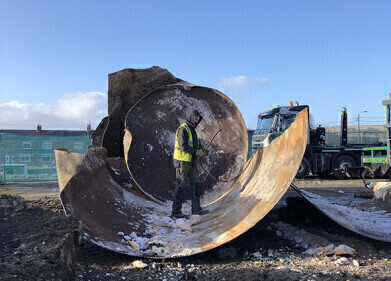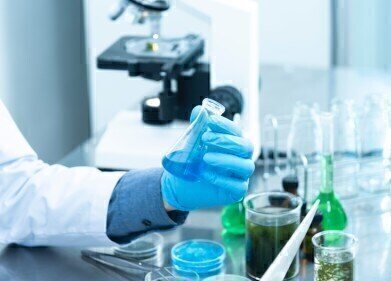Soil remediation
Saving our Seas – Recycling Technologies
Nov 04 2018
In celebration of the start of The Ocean Cleanup project in September, we’re taking a look at 5 of our favourite innovative ways to reduce ocean pollution.
As well as looking at how organisations are starting to remove the abundance of plastics in the ocean, such as 4ocean and the Seabin, we’re going to be discovering innovative ways to reduce the amount of plastic being produced and used. This post looks at Recycling Technologies
Who are Recycling Technologies?
The British company has developed revolutionary technology that can turn all forms of plastic into virgin plastic, wax and oils, including materials that are usually considered unrecyclable…
Plaxx
Recycling Technologies make Plaxx from waste plastics. Plaxx is an ultra-low sulphur oil, cut into 4 fractions – Plaxx-8, -16, -30 and -50. The recycled feedstock can be used in multiple industrial sectors, sold separately or as a whole.
Recycling Technologies aim for Plaxx-8, -16 and -30 to be used for steam cracking in the plastics production chain. Plaxx-50, on the other hand, is a petroleum wax, to be used in packaging, cosmetics and other useful applications.
The RT7000
Recycling Technologies’ primary product is the RT7000 – the machine that turns non-recyclables into Plaxx. Originally developed as part of a project by the University of Warwick, the RT7000 can process up to 7,000 tons of mixed plastic waste per year.
The RT7000 is designed to be installed at waste sites and recycling centres, taking plastic waste and converting it into a usable, sustainable form of fuel. As well as providing an alternative solution for oil, the RT7000 saves non-biodegradable plastics from ending up in, already full, land fill sites.
Recycling Technologies’ mission is to build 1,300 RT7000 machines in the next decade, helping to achieve their goal of producing 7 million tons of Plaxx by 2027.
Take a stand
Even with this revolutionary technology, taking unrecyclable products and converting them into usable oils and waxes, a reduction in plastic use is still needed. By uniting and pledging to reduce our plastic use, we can all make a much-needed difference to the state of our oceans and planet.
Take a look at our previous posts, looking at what can be done and what is being done to help remove plastic waste from our oceans. Or, if you’re interested in new materials being developed, be sure to read the article ‘HDPE - a Hydrocarbon Resistant Membrane?’.
Events
Mar 18 2025 Expo Santa Fe, Mexico
Mar 18 2025 Moscow, Russia
Mar 19 2025 Manila, Philippines
Mar 20 2025 Guangzhou, China
Mar 24 2025 National Harbour, MD, USA














